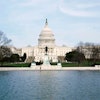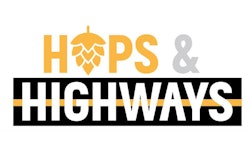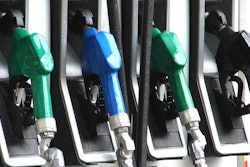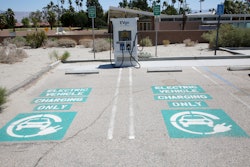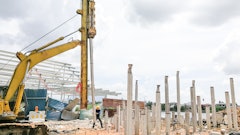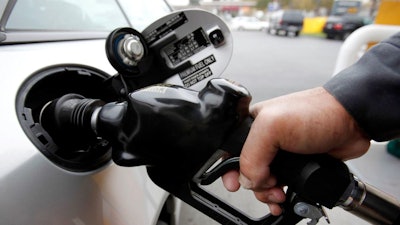
The White House and top Democrats are considering a proposal to suspend the roughly 18.3-cents-per-gallon federal gas tax for the rest of the year, which could cut transportation revenue by more than $20 billion. The governors of Arkansas, California, Colorado, Florida, Illinois and Virginia are floating the idea of either rolling back existing gas taxes or preventing scheduled rate hikes from taking effect.
Sens. Mark Kelly (D-AZ) and Maggie Hassan (D-NH), each up for re-election in November, introduced S. 3609, the Gas Prices Relief Act. The Senate Democratic caucus is split on whether to support the effort, and some Republican senators have spoken against the proposal. Nevertheless, U.S. Rep. Tom O’Halleran (D-AZ) has introduced companion legislation. The Biden administration has not taken a public position on the proposal.
The industry is staunchly opposed to the measure as gas tax funds are used to pay for infrastructure improvements through the Highway Trust Fund. Most federal highway and public transportation programs are funded primarily with taxes on gasoline and diesel fuel, a “user pays” system to support construction and maintenance. And while drivers might see a small savings on gas purchases, the government will certainly lose essential revenue to modernize roads, bridges and transit systems, and slow the transition to cleaner vehicles.
“Suspending the 18.4 cents per gallon federal gas tax is not going to give consumers significant relief—if any at all," says Rep. Peter DeFazio (D-OR). "But suspending the tax will blow a $26 billion hole in the Highway Trust Fund this year and cause further delay in rebuilding our decrepit infrastructure and the tens of thousands of jobs that investment would have provided.”
The Transportation Construction Coalition sent a joint Feb. 17 letter to every congressional office strongly opposing the measure.
"Proponents of the gasoline tax holiday, as proposed in S. 3609, suggest it would lower prices for consumers. However, the view that federal fuel taxes have a discernible impact on prices at the pump misses the mark," the letter says. "The federal gasoline tax has not been increased since 1993, when gasoline was around $1.00 per gallon nationally. Meanwhile, gasoline prices have increased roughly 250 percent, which indicates other factors, like supply and demand, input costs, and geopolitics are drivers of price fluctuations--not federal fuel taxes. A gasoline tax holiday would have little meaningful impact on fuel prices, would further erode the user-pays system, and make it harder to repair America’s aging infrastructure.
“Suspending the federal gasoline tax in the name of ‘economic relief’ is misguided and could undermine the recently enacted and bipartisan Infrastructure Investment and Jobs Act (IIJA).”
Meanwhile IIJA Funds Still Not Released
The Senate’s Feb. 18 passage of a three-week stop gap spending bill helps avert a government shutdown and keeps most federal programs funded at FY 2021 levels but it also means there has been no appropriations bill to release IIJA funding. FHWA still requires a FY 2022 Transportation, Housing and Urban Development Appropriations Bill to be enacted before states can obligate most of their allocated formula funds promised by IIJA.
The IIJA authorizes historic increases in funding for most federal highway and public transportation programs but those enhancements are on hold until a new FY 2022 spending bill is enacted. This is the fourth time Congress and the administration have postponed the FY 2022 spending package. This delay is causing state transportation departments to hold off on lettings for the increased spending. The American Roads & Transportation Builders Associations says that implementation of many new state formula and discretionary programs at the U.S. Department of Transportation is also stalled.
The Federal-aid Highway Administration however has begun allocating to states Appalachian Highway grant awards and Bridge Formula funds to be obligated immediately for projects. While the current CR has stalled implementation for certain programs, these two IIJA programs were funded under the general fund supplemental appropriations section of the bill, which means these funds can be obligated to projects immediately.
Congressional negotiators have made progress on a final FY 2022 package and are expected to meet the new March 11 deadline. The industry continues to push to maximize transportation funding in the bill.


